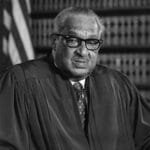 Justice Harlan F. Stone, appointed by President Calvin Coolidge in 1925, later became Chief Justice under President Franklin D. Roosevelt in 1941. Stone’s tenure on the Court, spanning nearly two decades, was marked by his commitment to judicial independence and constitutional interpretation.
Justice Harlan F. Stone, appointed by President Calvin Coolidge in 1925, later became Chief Justice under President Franklin D. Roosevelt in 1941. Stone’s tenure on the Court, spanning nearly two decades, was marked by his commitment to judicial independence and constitutional interpretation.
As an associate justice, Stone supported New Deal legislation and advocated for federal authority in regulating the economy. His dissent in United States v. Butler (1936) criticized the Court’s invalidation of New Deal programs, emphasizing the need for judicial restraint. As Chief Justice, Stone presided over key cases during World War II, including Korematsu v. United States (1944), where he upheld the internment of Japanese Americans—a decision later viewed as a stain on his legacy.
Stone’s opinions often emphasized the importance of democratic governance and individual rights. He passed away in 1946 while serving as Chief Justice, leaving a legacy of intellectual rigor and public service.





